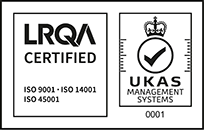Call us free on 0808 168 9540
Call us free on 0808 168 9540

Phlorum provides dormouse surveys across southern England, including Sussex, London, Surrey, Kent, Dorset, Hampshire and Wiltshire.
The hazel dormouse is a native British mammal. It is small and golden-brown in colour, with a furry tail and large black eyes. Sightings are rare due to its diminishing population and nocturnal habits. The distribution in the UK is largely confined to southern England and Wales, where it is known to inhabit woodland, scrubs, and hedgerows.
The dormice population is seriously endangered and fully protected under the Conservation of Habitats and Species Regulations 2010. Disturbing them or damaging their habitats is against the law.
Dormice spend most of their active time high off the ground, rarely descending except to hibernate. Hibernation generally takes place from October until mid-April and they are therefore affected by ground disturbance in winter and early spring.
Dormouse surveys can be carried out to detect actual presence or demonstrate likely absence. These should be undertaken during the active period. A nut search involves looking for hazelnut shells that the dormice have discarded. When opening the nuts, the dormouse leaves a distinctive smooth round opening with characteristic tooth marks around the rim of the hole.
A dormouse nut survey can be carried out between September and December when the hazelnuts are still fresh and show markings more clearly than older ones.
Nest tubes are plastic tubes with a small wooden tray that dormice use to make summer nests. Depending on the size of the site being surveyed, a minimum of 50 tubes should be used.
Ideally, the nest tubes should be in position in time to attract dormice when they come out of hibernation in April/May. The tubes should be left for several months and checked monthly to achieve an adequate ‘thoroughness’ score.
Phlorum can also provide advice on mitigation and compile European Protected Species Mitigation (EPSM) licence applications for developments likely to impact upon dormice.
We offer a wealth of experience in assisting developers with dormouse surveys to overcome issues related to planning applications. Contact our team of ecology consultants to learn more about our protected species surveys and for a free dormouse survey consultation.










